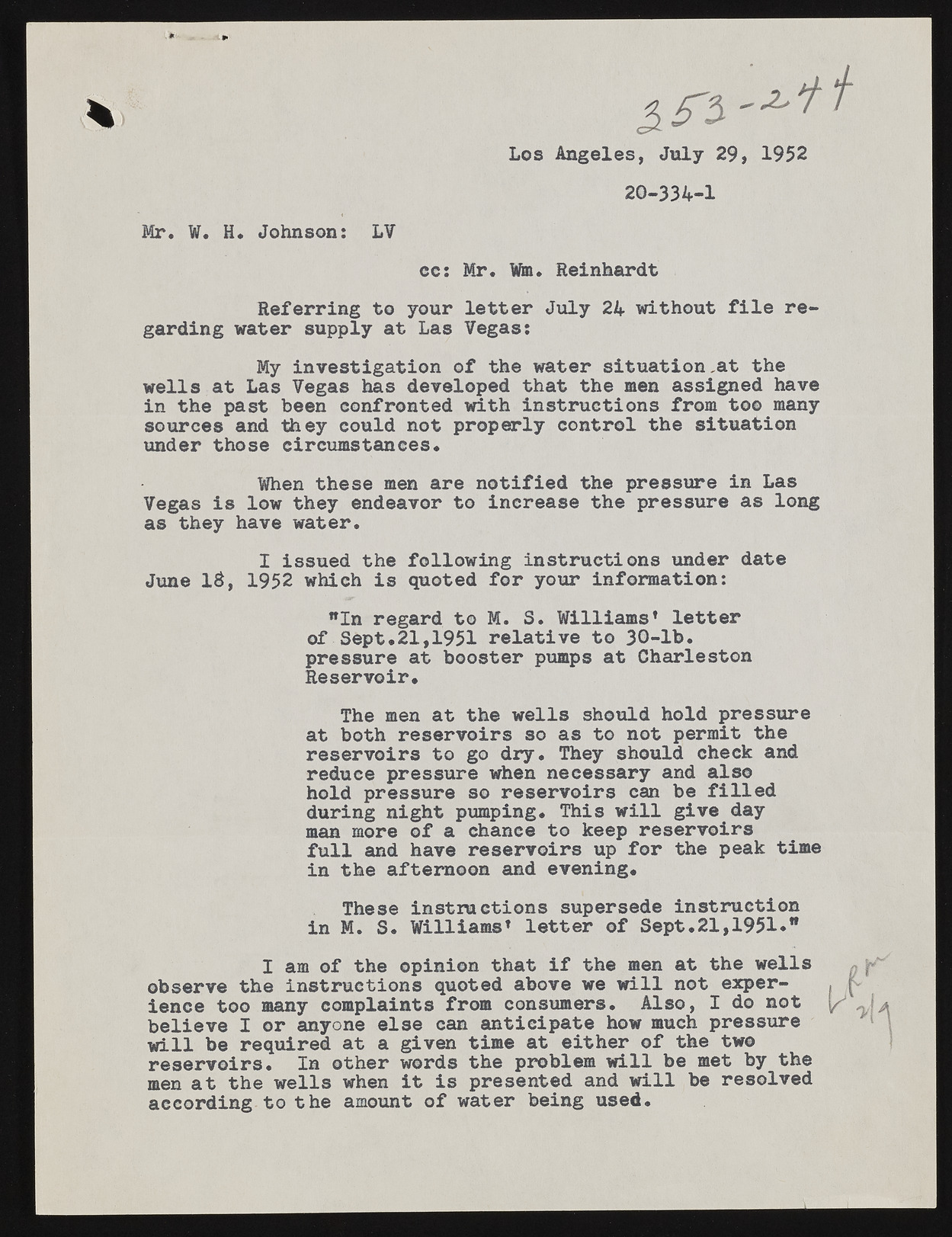Copyright & Fair-use Agreement
UNLV Special Collections provides copies of materials to facilitate private study, scholarship, or research. Material not in the public domain may be used according to fair use of copyrighted materials as defined by copyright law. Please cite us.
Please note that UNLV may not own the copyright to these materials and cannot provide permission to publish or distribute materials when UNLV is not the copyright holder. The user is solely responsible for determining the copyright status of materials and obtaining permission to use material from the copyright holder and for determining whether any permissions relating to any other rights are necessary for the intended use, and for obtaining all required permissions beyond that allowed by fair use.
Read more about our reproduction and use policy.
I agree.Information
Digital ID
Permalink
Details
Member of
More Info
Rights
Digital Provenance
Publisher
Transcription
Los Angeles, July 29, 1952 20-334-1 Mr. W. H. Johnson: LV ec: Mr. Win. Reinhardt Referring to your letter July 24 without file regarding water supply at Las Vegas: My investigation of the water situation,at the wells at Las Vegas has developed that the men assigned have in the past been confronted with instructions from too many sources and they could not properly control the situation under those circumstances. When these men are notified the pressure in Las Vegas is low they endeavor to increase the pressure as long as they have water. I issued the following instructions under date June IS, 1952 which is quoted for your information: wIn regard to M. S. Williams1 letter of Sept.21,1951 relative to 30-lb. pressure at booster pumps at Charleston Reservoir. The men at the wells should hold pressure at both reservoirs so as to not permit the reservoirs to go dry. They should check and reduce pressure when necessary and also hold pressure so reservoirs can be filled during night pumping. This will give day man more of a chance to keep reservoirs full and have reservoirs up for the peak time in the afternoon and evening. These instructions supersede instruction in M. S. Williams’ letter of Sept.21,1951*" I am of the opinion that if the men at the wells observe the instructions quoted above we will not experience too many complaints from consumers. Also, I do not believe I or anyone else can anticipate how much pressure will be required at a given time at either of the two reservoirs. In other words the problem will be met by the men at the wells when it is presented and will be resolved according to the amount of water being used.

